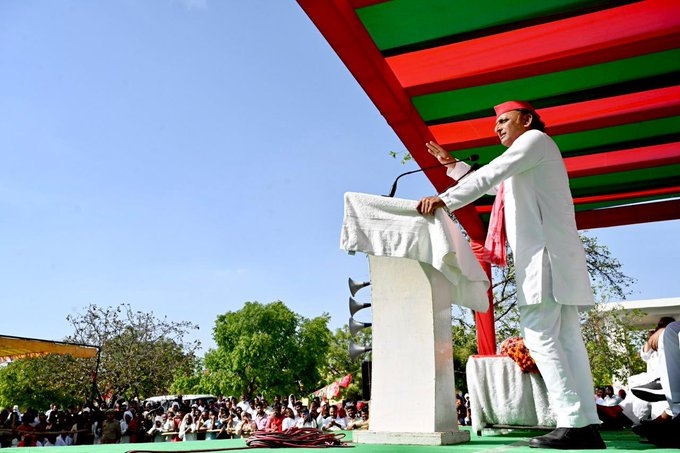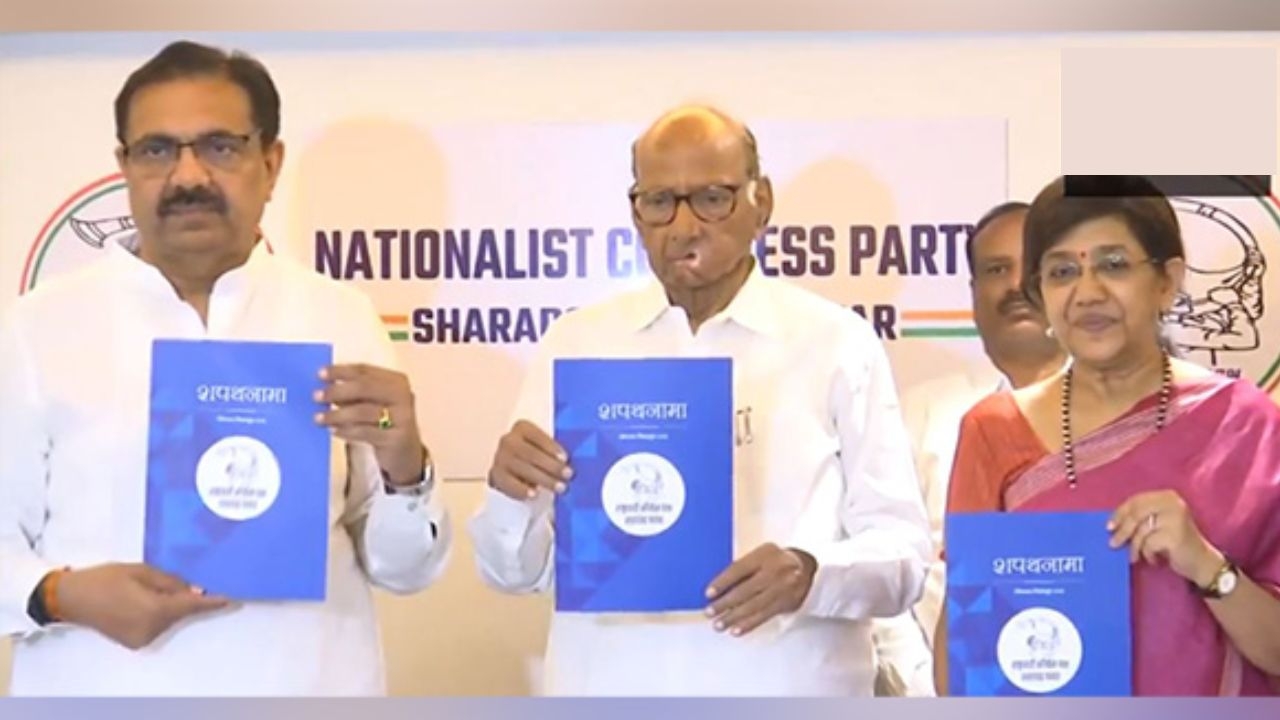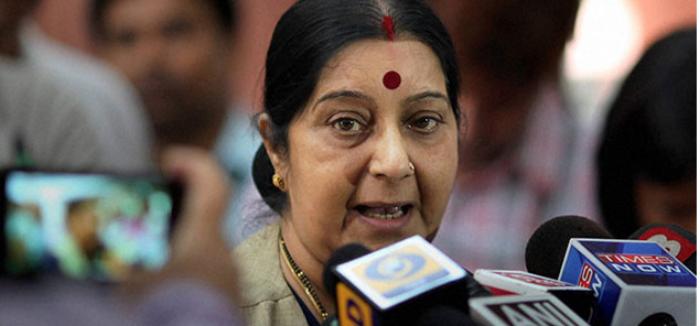
- Sushma Swaraj will travel to Islamabad on Tuesday on a two-day visit during which she will hold talks with her Pakistani counterpart Sartaj Aziz.
- She will attend a multilateral conference on Afghanistan.
External Affairs Minister Sushma Swaraj will travel to Islamabad on Tuesday on a two-day visit during which she will hold talks with her Pakistani counterpart Sartaj Aziz and attend a multilateral conference on Afghanistan.
External Affairs Ministry Spokesperson Vikas Swarup tweeted:
EAM @SushmaSwaraj to lead Indian delegation for Heart of Asia 5th Ministerial Meeting on Afghanistan on December 9 in Islamabad
- Vikas Swarup (@MEAIndia) December 7, 2015The backdrop:
Swaraj's visit comes two days after talks between the National Security Advisors of India and Pakistan yesterday in Bangkok, where they discussed terrorism, Jammu and Kashmir and a range of key bilateral issues apart from agreeing to carry forward the "constructive" engagement.
The External Affairs Minister will call on Pakistani Prime Minister Nawaz Sharif and meet his Adviser on Foreign Affairs Sartaj Aziz on the sidelines of the 'Heart of Asia' regional conference on Afghanistan on Wednesday.
Her visit comes three years after former external affairs minister SM Krishna travelled to Islamabad in 2012 when the countries also inked a visa liberalisation pact.
Composite dialogue holds the key?
Acknowledging that the deadlock in Indo-Pak ties has somewhat eased, Aziz today said his talks with Sushma Swaraj this week would focus on the resumption of composite dialogue process.
This can only draw one conclusion: The major focus of these meetings will be on defence, security ties and issues along the LoC and the impending Kashmir issue that both sides will have to resolve.
The turning point with these developments is that New Delhi can directly work in tandem with Pakistani army without any mediators, something that the Pakistani officials wanted for long. Now, all eyes are set on the fruitful conclusion of these meetings and the outcomes, either negative or positive.
What is composite dialogue?
The roots of the Composite Dialogue Process date back to May 1997, when at Male, the capital of Maldives, former prime minister Inder Kumar Gujral and his Pakistani counterpart Nawaz Sharif mooted the idea of a structured dialogue or the Composite Dialogue Process (CDP).
Based on a compromise approach, the peace process enabled the two countries to discuss all issues including Jammu and Kashmir, simultaneously. Since its inception, the dialogue process has gone through numerous highs and lows in bilateral relations. It has remained susceptible to unforeseen incidents which have derailed the process several times in the past.
However, since April 2003 it has progressed steadily till the November 26 2008 Mumbai terror attacks, when the dialogue process was suspended for a long time.
Former foreign secretary Nirupama Rao put out the following cautionary words on her Facebook wall:
First published: 7 December 2015, 8:57 IST"Now that news of the two NSAs (India and Pakistan) meeting in Bangkok has "broken" (all news in our region is breaking - how cliched it sounds) everybody is going into the same paroxysms of ecstasy about a parting of waters as it were. Nothing in Indo-Pak relations is allowed to mature to fullness - hardly have some green shoots shown and they are mowed down with unseemly emotional hysteria and enthusiasm. We must understand that in relations between our two countries the going is never easy and just that we shake hands in a foreign land or conduct diplomacy on a stray sofa does not mean that problems are going to be somehow solved. The emphasis must be on keeping the channels of dialogue open and patience of the biblical variety together with intelligent vigilance and astute assessment of our adversary's moves. We need to grow up."



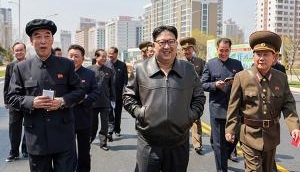

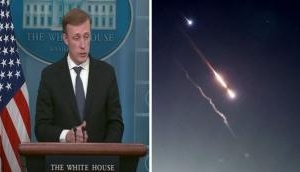
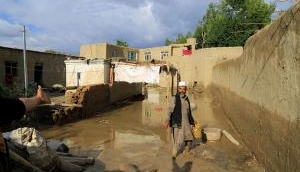
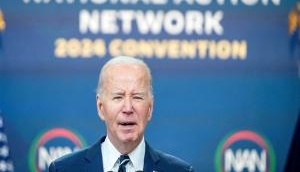
![BJP's Kapil Mishra recreates Shankar Mahadevan’s ‘Breathless’ song to highlight Delhi pollution [WATCH] BJP's Kapil Mishra recreates Shankar Mahadevan’s ‘Breathless’ song to highlight Delhi pollution [WATCH]](http://images.catchnews.com/upload/2022/11/03/kapil-mishra_240884_300x172.png)

![Anupam Kher shares pictures of his toned body on 67th birthday [MUST SEE] Anupam Kher shares pictures of his toned body on 67th birthday [MUST SEE]](http://images.catchnews.com/upload/2022/03/07/Anupam_kher_231145_300x172.jpg)


